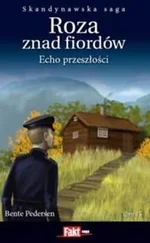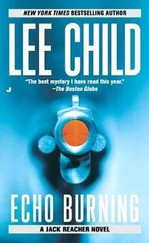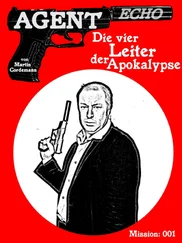They were clustered in a group outside the rear of the barn. He saw the scene from a hundred feet away, from behind the screen of trees. And at first he could make no sense of it at all. This was because he knew that his father’s land was flat. Every inch of it was flat. Yet they were sitting grouped around their fires on a hill. And then he saw its purpose, what it was they had constructed on their hill.
There were three wooden crosses. A uniformed man hung from each. The oldest and most senior-looking of the prisoners was at the centre. To his right and left, Pierre thought, perhaps the men flanking him were his aide-decamp and his driver. Was the man at the centre a general? It did not matter. Other details imposed themselves with far greater and more shocking clarity on his young mind. They had been nailed to the crosses using bayonets. They were still, the pinioned men. Pierre thought that they were probably dead. And they had each of them been crucified upside down.
As he watched, rigid with the dread overwhelming him, one of the Americans, a man with a pale swatch of hair, rose from the ground and idled across to the victim at the centre of the tableau. He took a knife and sawed at the torso and Pierre was certain now that the German general suffering this mutilation was dead. The man tugged at the corpse and his free hand came away with something wet that glistened in the flames of their fires, and he lifted and dropped this human morsel into his mouth and started to chew.
And Pierre heard laughter and clapping. And then at the edge of the group, he saw a seated man lean over and vomit on the earth. This man was dressed in the same uniform as the other Americans, he saw. But his hands appeared to be bound at his back. And there was the glimmer of a clerical collar in the firelight around his neck.
‘Derry Conway,’ Suzanne said.
‘They built their own Calvary,’ Pierre, who was Pierre Duval’s grandson, said. ‘They constructed an abomination. They were an abomination themselves. After that, no one from the farm went near the place again. And, of course, the boy who was my grandfather revised his views concerning war.’
‘Tell me about the building,’ Suzanne said.
Duval stared down at his coffee mug. Suzanne thought that he looked not just sorrowful, but ashamed. He raised his head and looked her in the eyes. ‘It has been there since the Great Terror that followed the Revolution. It was built by the Société Jericho . Such cults were tolerated, even encouraged, in those times so hostile to organised religion. My ancestors leased them the land on which to build their temple. They paid a toll for their access along the route through our land to get to it. We profited. We profited from them for a time. They were banned in the reign of the First Emperor. The building was gutted and made derelict. But my family has paid and gone on paying for the sin of our opportunism and greed concerning the Jericho Society.’
‘Do you know why they are called that?’
Duval smiled. ‘Jericho is the old Hebrew word for moon,’ he said. ‘They are called that because they are of the night. They are dedicated to the night and what flourishes under the mantle of darkness.’
Suzanne finished her coffee. Duval escorted her back through the rain to her rental car. Leaving his home, in a pen beside a stand of trees, she saw two Doberman dogs. One of them must have been the source of the earlier barking she had heard.
‘Do you keep them for the company?’
He laughed, but it was bitter laughter. ‘On the contrary, madame . The dogs are here not because I am alone. They are here because I have the suspicion that, sometimes, I am not.’
She thanked the farmer and, without another word passing between them, he walked her back to her car and saw her off his land.
She became aware of the vehicle in her rear-view mirror about twenty minutes after exiting the lane that led to the farm. It was a black van. It was quite large and, after a couple of miles, she was pretty sure that it was following her. This was because although she drove with the slow caution of a stranger to the area obliged to drive on the wrong side of the road, the van did not close the distance and attempt to overtake. It just sat in her rear-view mirror. She tried to dismiss her nervousness concerning the van as paranoia. But when, to ascertain the truth of the situation, she reduced her speed, the black bulk of it simply stayed, in relation to her, precisely where it was. She could not avoid the conclusion that it was waiting, deliberately lurking in her wake.
All Suzanne could do was continue to drive. Every kilometre she travelled brought the bright, commercial bustle of Calais and the ferry terminal incrementally closer. Brightness, though, was becoming a problem. More precisely, the lack of brightness was becoming a complication as a mist rose or a fog descended and the ribbon of road in front of her grew pale and spectral in the full, enfeebled beam of her headlights. She groaned. She tapped a tattoo with her fingers on the wheel. She switched off the wipers. She tried to comfort herself with the thought that at least the rain had finally stopped falling. But when she looked in the rear-view mirror, all she could see behind her was an opaque blanket of grey. Her squat black pursuer had slipped from sight altogether.
And then the van flashed past her. It was as sleek and sudden alongside as a shark beside a swimmer in the water. Except that this shark had steel flanks and something was etched and glittered on them in gold. In the dead lustre of the mist, the legend read, ‘Martens & Degrue’. And Suzanne, who did not share her boyfriend’s sometimes charitable belief in coincidence, wondered just how deeply, in what awful sort of trouble, Martin and his father were allowing themselves to become engulfed.
A kilometre or two on, the mist began to lift. She saw a sign at the roadside for Calais. Her numb fear receded enough for her to realise just how badly she was craving the comfort of normality. She looked at her watch and, having the time to do so, pulled in to a roadside café and went inside and ordered hot chocolate. The café was warm and light. Indifferent people with mundane routines sipped beverages around her. The Police played ‘Every Little Thing She Does Is Magic’ through wall-mounted speakers. The tables were Formica-topped. There were the smells of roasting beans and toasting cheese and ham baguettes and the faint aniseed whiff of Ricard, served from a sticky optic behind the bar. If there was a smoking ban in the café, its patrons were ignoring it.
Sipping her drink, normality beckoned for Suzanne, and it was seductive. But it came only at the price of a sort of willing amnesia concerning the past few hours and their events and revelations. She could forget about them, which would be the painless route back to the certainties of yesterday. Or she could subject them to a clever, sceptical reinterpretation, which would take longer, but would eventually deliver the same comforting effect.
Comfortably numb. There was a song by someone, wasn’t there, called ‘Comfortably Numb’?
And there was a song called ‘When Love Breaks Down’ written by a failed priest called Paddy McAloon. She had heard it playing in a manner it very definitely should not have on the radio of the rental car as she journeyed to the farm near Béthune owned by the brave and cautious Frenchman, Pierre Duval.
Despite the temptation, Suzanne would not allow normality to settle its illusory claim on her. She had seen what she had seen and she had felt what she had felt and she had listened to what she had been told. Given time, she was sure that she could unravel the whole disquieting truth about Harry Spalding. But she hoped that it would not be necessary for her to have to do so. She hoped that what she had learned so far would be enough to deter Martin and more particularly his headstrong father from their planned voyage aboard Spalding’s refurbished boat.
Читать дальше












